By Olka Forster
“SXSW Eco creates a space for business leaders, policy makers, innovators and designers to advance solutions that drive social, economic and environmental change.” This year I was fortunate enough to go (thanks Sierra Club)!
On the last day of SXSW Eco 2016, Bill Nye gave a rousing speech in which he praised Texas’ wind energy generation and solar potential and made the case for an optimistic view of the future of our climate and the human ability to discover, invent, and eventually succeed in the energy revolution. Indeed, his closing keynote remarks perfectly summed up the three days of innovative displays and discussions that all shared a common vision: to change the world.
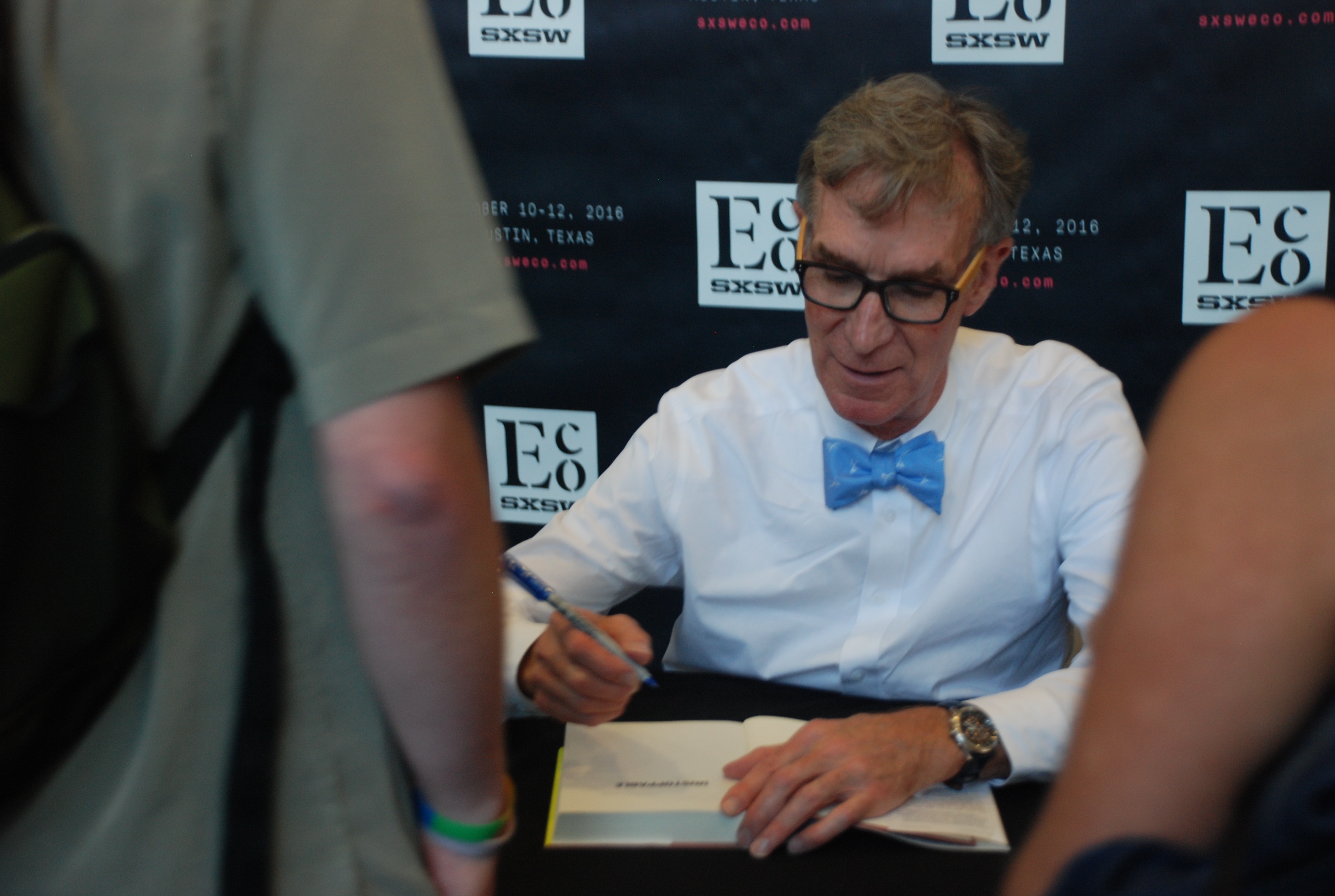
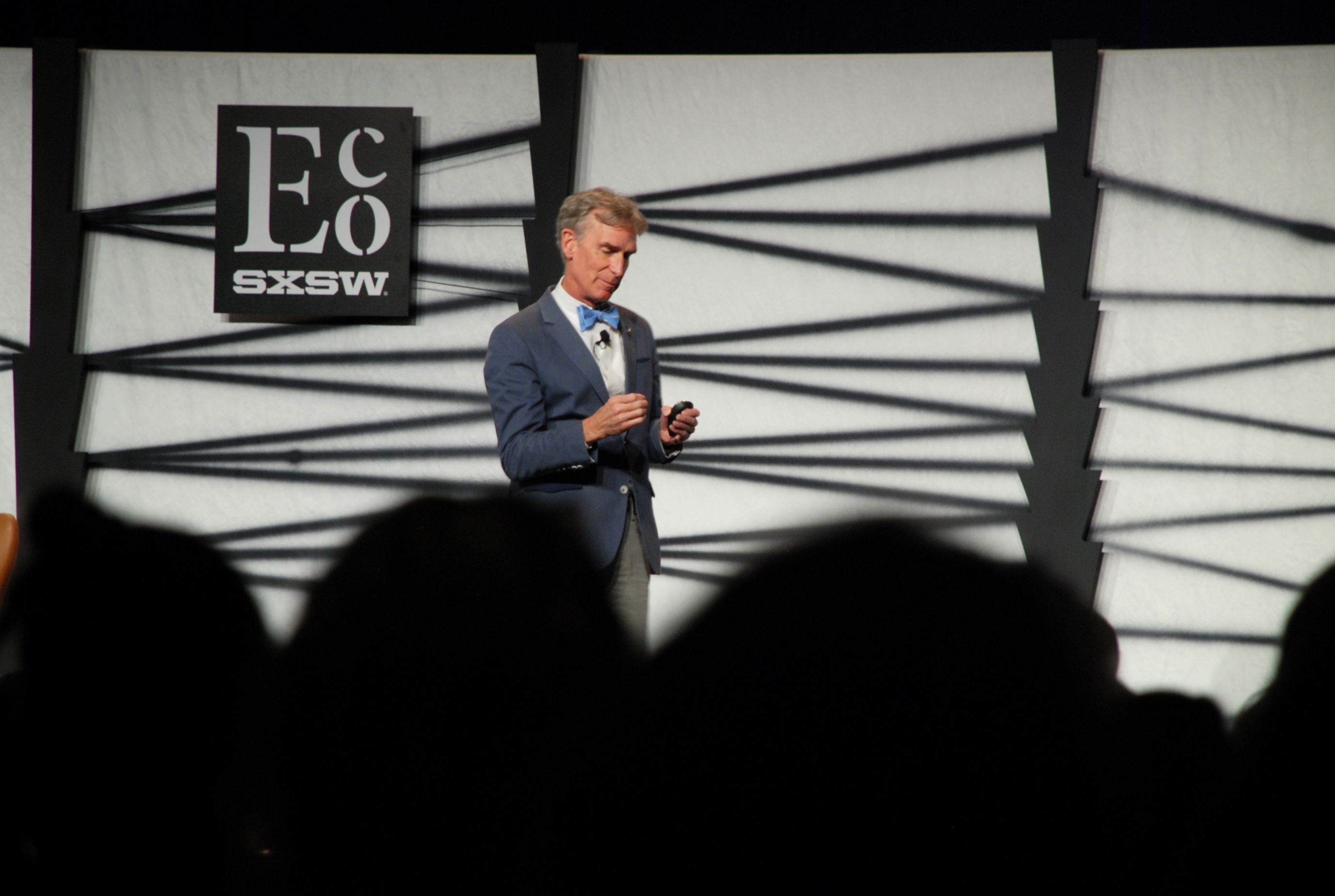
Each speech, presentation, and panel was memorable in its own way.
Robert F. Kennedy, who kicked off the event as the first keynote speaker, passionately declared, "Polluters always choose the soft targets of poverty," and, "...an economy based on pollution makes a few billionaires… but our kids will pay all their lives for the joyride."
The SXSW Eco’s Place by Design competition, which “celebrates innovative design work that transforms our everyday surroundings and creates positive social and environmental impact” showcased an incredible amount of talent. For me, these were the presentations where hope for the future and awe at human innovation were truly one.
In the Speculative and Prototyping section, a standout presentation was given by Sean Ahlquist whose autistic daughter inspired him to create a Social Sensory Architecture project which addresses underlying challenges for people with autism spectrum disorder such as fine and gross motor control.
In the Revitalization section, the eventual winner, The MBAD African Bead Museum was displayed by its founder, Olayami Dabls. Dabls showed how he uses outdoor installations, an African Bead gallery, N'kisi House, and African language wall as a way to engender cultural literacy via architectural revolution in disinvested communities in Detroit. This project, his co-presenter so aptly articulated, is “creating space for cultural identity to live where it's being violently erased."
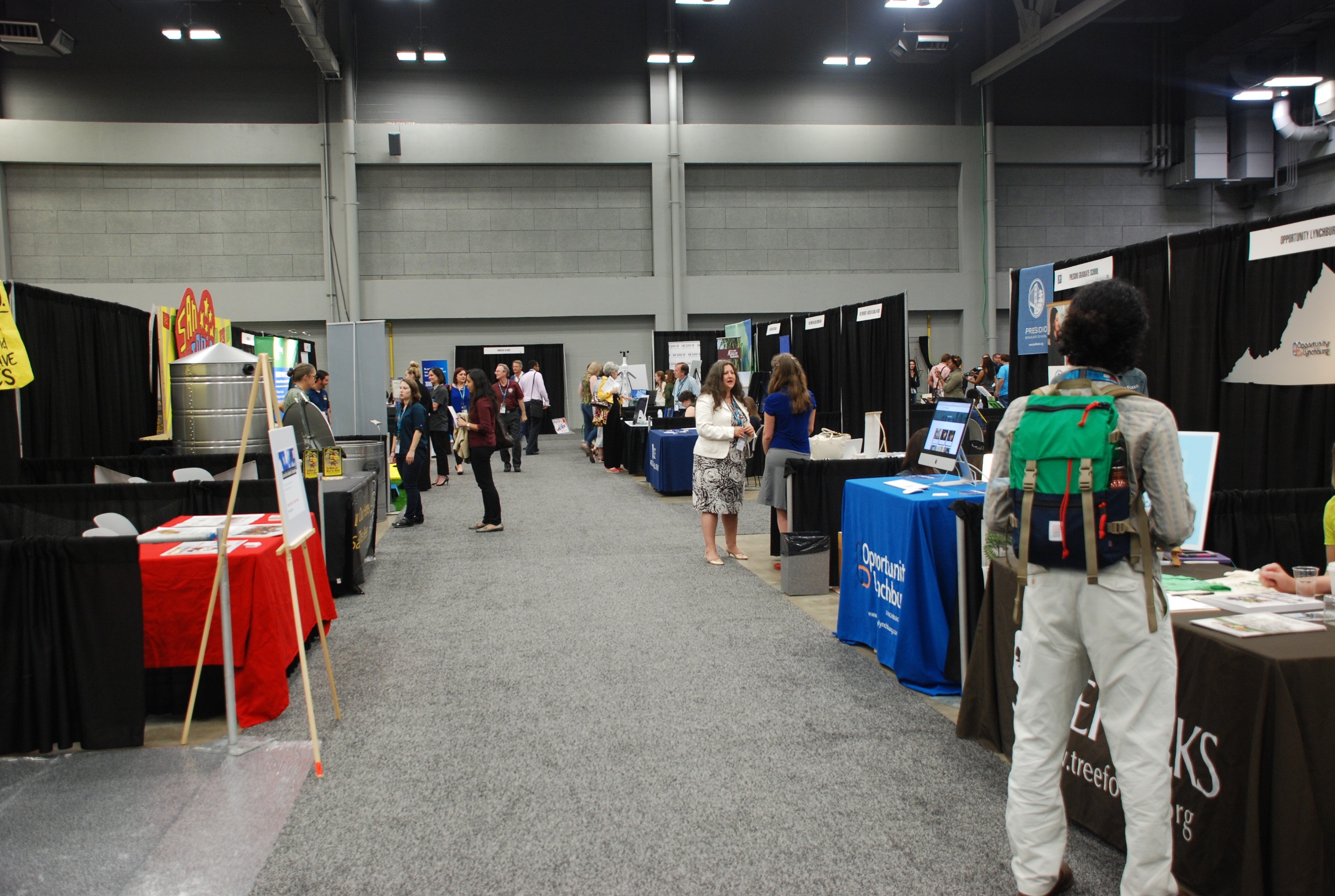
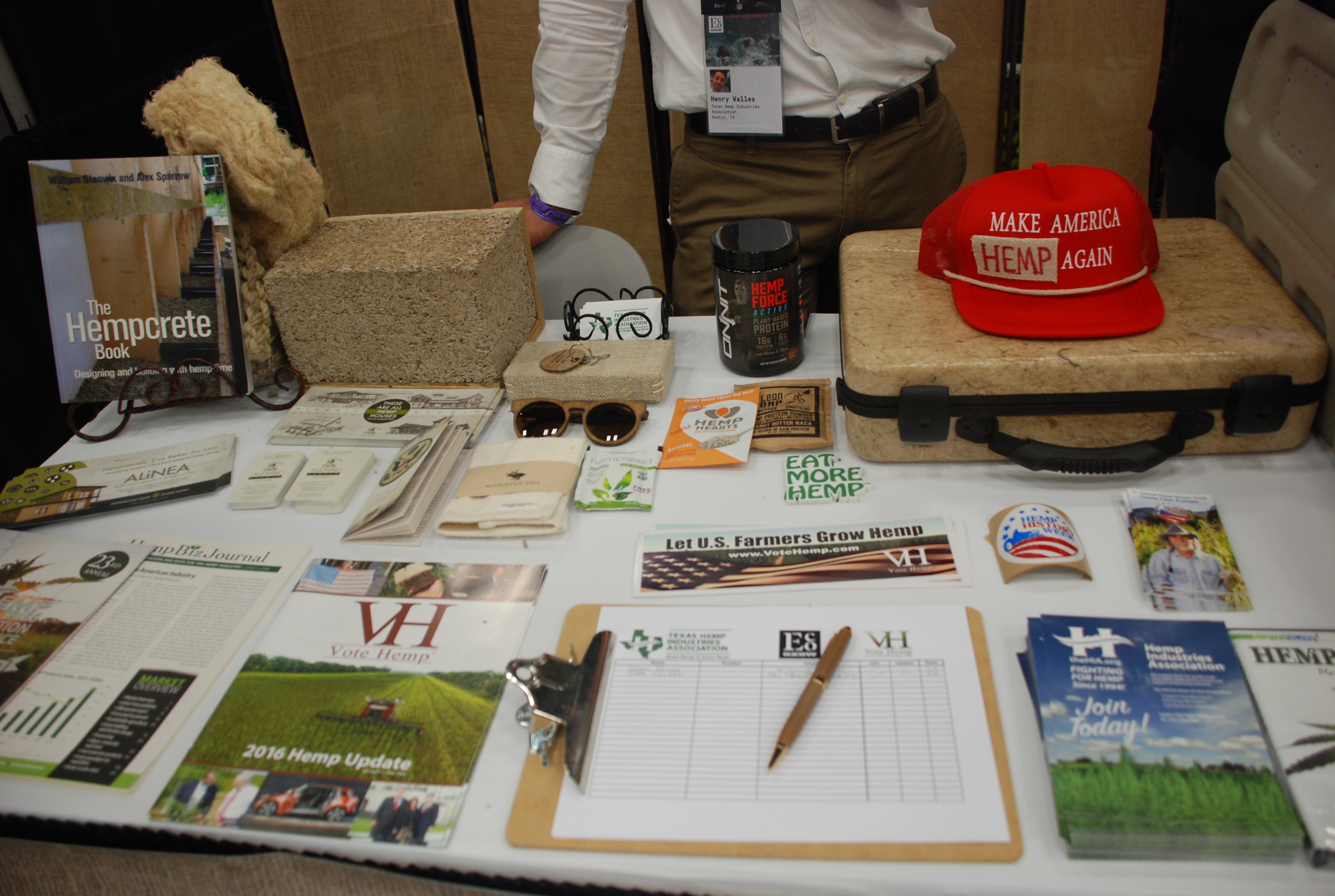
While there were many ways that SXSW Eco was relentlessly inspiring, it is still apparent (at least to me) that they are still grappling with the pervasiveness of white supremacy.
I was repeatedly impressed with the space people of color (POC) were given to tell their own stories and talk frankly about the effects of white supremacy in their communities and the fights they were involved in to reclaim culture, history, space, and self. POC shined, from native water protectors from the Dakota Access Pipeline fight to one of the keynote conversations, Designing a Just City: Hip Hop Architecture, where Michael Ford and Bryan Lee Jr, (to my delight) seamlessly meshed critiques of Le Corbusier (20th Century Swiss-French architect) with their revolutionary and intersectional design visions for the present and future. This space to allow people of color to speak for themselves and about themselves is not only necessary, it is a right that this generation is increasingly demanding.
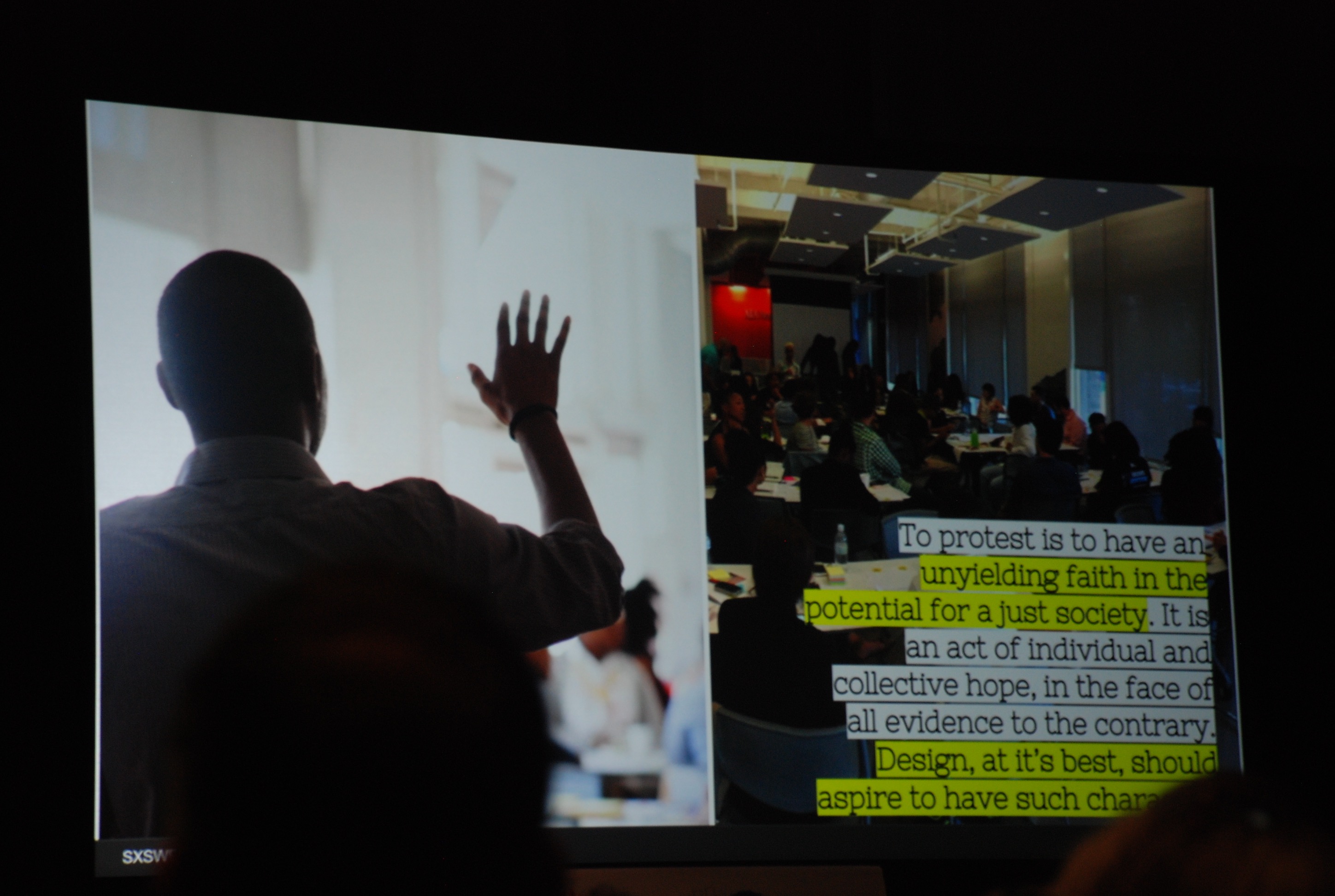
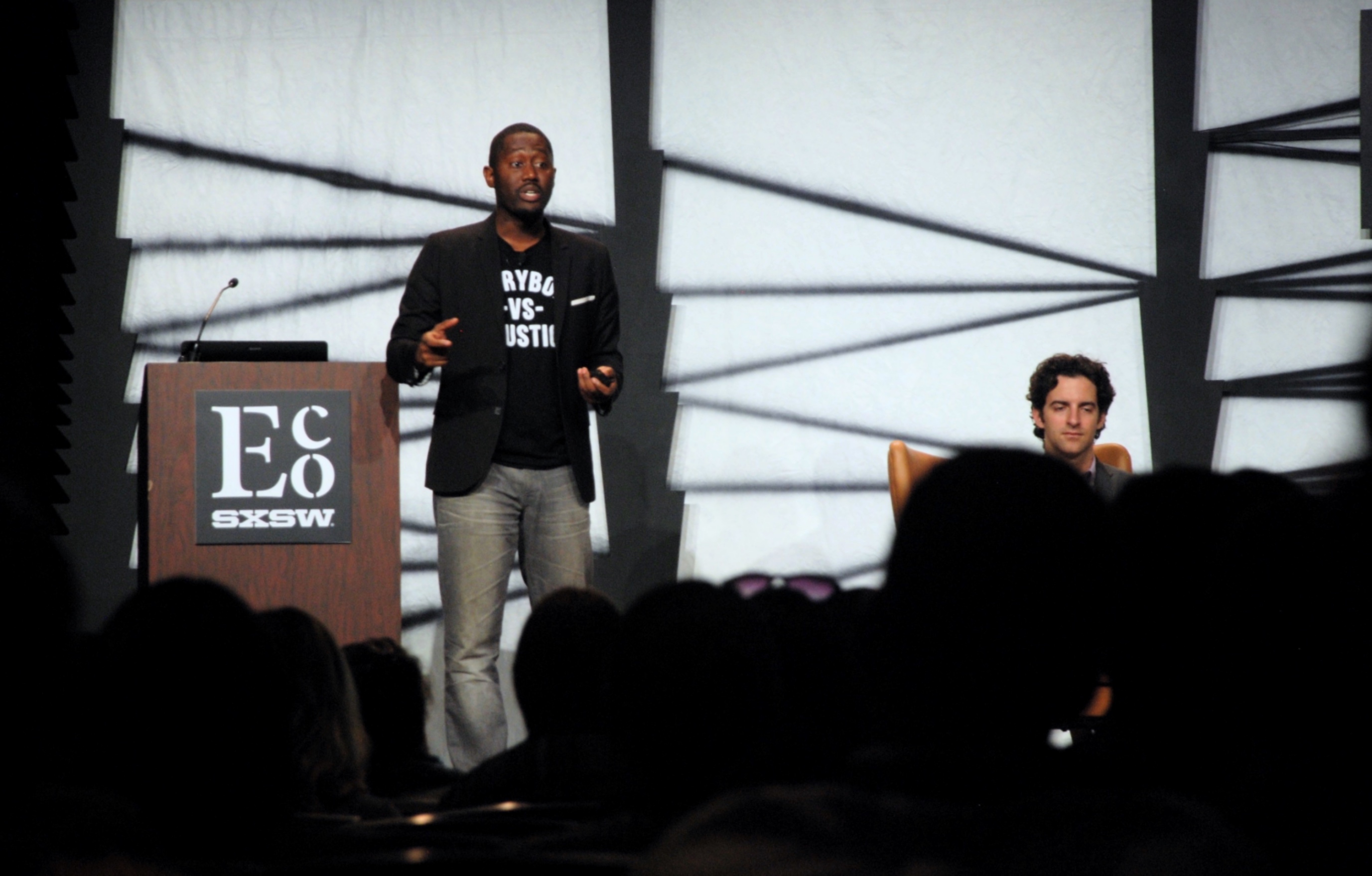
Less impressive, however, was the space given to organizations and sponsors that participate in the continued oppression of communities of color (no matter how well-intentioned or benevolent they present themselves to be). One display that left me shaking my head was that of an organization that concerned itself with African bees and featured shirts stating “Black Hives Matter.” While one can and may make the case that honeybees are important to our continued collective existence (Black people included), I am of the opinion that appropriating a phrase about the murder of Black people for an organization founded by a white woman is at best tone deaf.
While the example above was a viscerally upsetting display, other presentations were no less culpable in their lack of consideration for the reality of environmental racism in the solutions they proposed. New agricultural tech was discussed without acknowledgment that tech often enables the owners of the means of production to mistreat workers and to make their work disposable. Strategies to fund the carbon revolution were proposed without asking questions like: how can responsible investing be sustainable if it neither challenges nor dismantles the current system of financial inequality? And, though I was impressed to hear judges pose this challenge to contestants, some urban innovation projects were presented without the voices or presence of those whose plight their innovation supposedly addressed.To truly challenge these pervasive issues that uphold white supremacy, SXSW Eco should continue its efforts to make sure that the voices proposing solutions are doing so on behalf of themselves. This includes, but isn't limited to, continuing to challenge the execution, community input, and sustainability of foreigner-led projects and discounting tickets to lower-income peoples to make the conference accessible.
All in all, SXSW Eco left me excited for the future. The just and sustainable energy revolution has the most talented, intelligent, and optimistic people on its side, and after last week I am even more convinced that we will win.